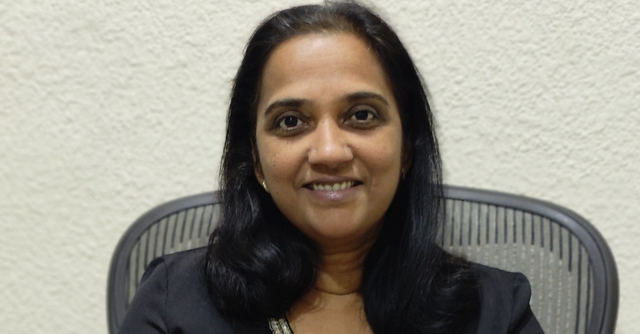
A woman must consistently prove her tech expertise to be seen as a leader, unlike men: NetApp India’s Vasanthi Ramesh


US-based storage and data management firm NetApp which has over a quarter of its employees based in India, is experiencing rapid growth in the country driven by tech innovation, new products and services, and a commitment to diversity and inclusion. In an interview with TechCircle, NetApp India Managing Director Vasanthi Ramesh outlines the company's India strategies and focus areas, discusses challenges faced by women in technology, and explains how technology promotes a more diverse and inclusive workplace. Edited excerpts:
What technologies are you most excited about currently and why?
A wide range of technologies excites me including Generative Artificial Intelligence (GenAI), Machine Learning (ML), quantum computing, cybersecurity, and renewable energy. My current role involves building the manageability platform for intelligent data infrastructure, specifically for GenAI/ML workloads. It's fascinating to witness the evolution of GenAI, moving beyond the hype to see innovative solutions addressing real business challenges. Fine-tuning foundational models creates technical hurdles in computing, infrastructure, data, compliance, and security, all of which are rapidly advancing. The potential to leverage vast datasets for insights and intelligence to improve productivity, customer experience, cost optimisation, and process simplicity is immense.
What kind of innovation is NetApp bringing from India?
NetApp India is our largest R&D site, contributing to most products. We develop solutions for hyperscaler integration, data mobility, protection, and cybersecurity, along with data storage and Software-as-a-Service (SaaS)-based manageability. This encompasses a wide range of technical and product skills. A significant moment was the launch of our anti-ransomware service, developed in Bengaluru. Launched last year, it is the first in the industry to be certified for achieving 99% accuracy in detecting ransom attacks, effectively addressing a significant concern for customers regarding data security.
What is the size and structure of your team in India, and what specific skill sets do you seek in potential candidates?

NetApp Bengaluru has around 3,000 employees across engineering, finance, legal, HR, and business operations, with engineering being the largest. Our engineering teams align with NetApp's core pillars: Enterprise Storage, Cloud, AI, and Security. We're seeking talent with expertise in cloud technologies, ML, data science, SaaS, core storage, product design, and IT operations. Beyond technical skills, we value individuals who are passionate about solving data and computing challenges for our customers.
What’s the roadmap for NetApp’s AI strategy and investments?
NetApp's AI strategy focuses on delivering the right products and solutions for insights, data services, and storage for AI/ML workloads, bringing AI to the data. We leverage our unified operating system for enterprise and cloud storage, integrated with hyperscalers. Building on this, we are working on a disaggregated architecture for computing with storage, with certifications for NVIDIA's Basepod and Superpod. Our investments are aligned with enterprise, cloud, AI, and security products and services.
Given the existing skills gap in the industry, particularly with the rise of AI, cybersecurity, IoT, and other technologies, what strategies do you have in place to address this issue?
To address the skills gap in AI, cybersecurity, and IoT, we're investing in upskilling our talent and hiring new talent. We take an inside-out approach, offering training programs, opportunities for higher education, and "gigs" in different technologies. Our Excellerator program fosters innovation by partnering with startups to solve business problems using cutting-edge technology.
Any upcoming growth and expansion plans you would like to share vis-a-vis the Indian market?

While I cannot provide specific growth numbers or timelines, NetApp India has consistently expanded year-over-year, increasing its contributions. As we execute our strategic roadmap, we anticipate talent growth in NetApp Bengaluru, particularly in AI, security, and cloud technologies.
What were the key challenges you faced as a woman tech leader and where did you seize opportunities?
As a tech woman, I faced many challenges. Some were stereotypical biases in the workplace, and some were culturally ingrained in me. The culturally ingrained biases were the toughest to overcome, such as using an affirmative voice or saying no. The biggest challenge was proving my technical proficiency. As a woman, you must repeatedly show that you are technically proficient enough to be accepted as a tech leader, unlike your male peers. Self-belief and perseverance help you challenge outdated perceptions. Being a leader in tech depends on skill, not gender. I realised that having a mentor to amplify your technical skills and guide you helps. Also, continuous learning and upskilling enabled me to provide better solutions to new business problems using the right technology. This helped me build a track record and the confidence to lead large engineering teams.
In what ways can technology foster a more diverse and inclusive work environment?
Technology significantly impacts creating a diverse and inclusive workplace, from talent acquisition to growing and retaining talent. For talent acquisition, we have AI tools that help screen resumes based on skills and not gender, age, or ethnicity and create more inclusive job descriptions. Digital content and learning platforms have made upskilling and continuous learning equally accessible. Similarly, social and professional platforms have enabled women to lean on, share their experiences and help each other. Finally, technology provides seamless transitions from maternity leave, work-life balance tools, and virtual health coaching, positively impacting women's retention in tech.
What strategies can women employ to thrive in the tech industry and move to leadership positions?

Women can thrive in tech through continuous learning and certifications, seeking mentorship, and expanding professional networks. It is essential to confront stereotypes and biases. Developing expertise in communication, emotional intelligence, effective questioning, and presentation skills is also crucial for advancement.
